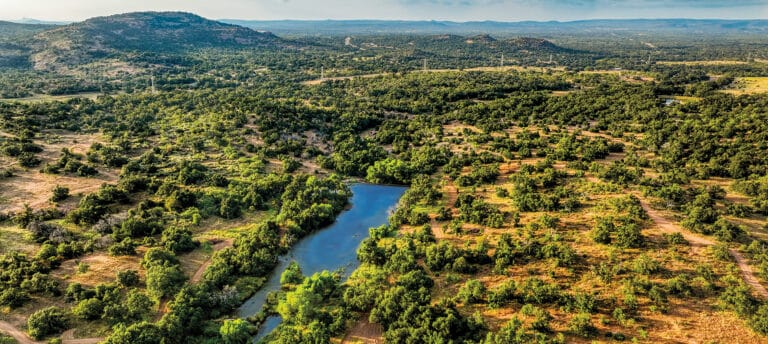As they say, “Education is a lifelong process,” and the year of 2020 will undoubtedly go down as a year that created some sharp learning curves for even the most seasoned experts. Wow. I am not sure if anyone could have predicted and fully prepared for the challenges that have come our way because of COVID-19. An entire book could, and will, be written on the multitude of challenges that have been presented to business owners due to the ripple-effects of this pandemic. Travel restrictions, shelter in-place orders, social distancing, flight cancellations, shortage of basic supplies, uncertainty, fear, anger, chaos and an inability to predict the dynamic and slippery nature of this entire COVID debacle, only partially characterizes the circumstances that much of the world felt during the height of this panic. There are many lessons to be learned from the pandemic impacts, some of which are still being uncovered, but business owners would be well-served to process these experiences in a fashion that allows them to be smarter and better-prepared in the future.
For those proprietors who are in the outdoor recreational travel industry, such as hunting and fishing outfitters, and eco-tourism professionals, there are several obvious epiphanies that the COVID-19 experience has granted us. It is up to the business owner to channel these experiences into strategies for catering to clients and creating business safeguards that may perhaps soften the blow in dealing with future challenges.
Travel Insurance Excludes Pandemics
I have been in the commercial hunting business for 33 years, and 2001 was one of the more difficult periods that I have faced. The 9/11 terrorist attacks and the ensuing panic resulted in a massive number of people who cancelled vacation and business trips that involved air travel. Beginning in 2002, I began pushing trip cancellation insurance to my clients, not simply to cover occasions like we saw on 9/11, but because it became more apparent to me that it made good sense for people to protect their financial outlays should they have to cancel their plans for various reasons. By actively and visibly recommending this protection to our clients, it also took a little more burden off of our shoulders when clients would cancel, and they would question us about cancellation and refund policies, and we could ask them if they purchased trip cancellation insurance as we suggested.
Not long into the COVID-19 panic, it became apparent that, as far as I can tell, none of these trip cancellation insurance policies cover pandemics. So, I am not sure how we look for ways to mitigate this matter in the future, other than everyone having eyes wide-open that this is simply the way it is.
Cancellation and Refund Policies
For many years, I have had clear language in our booking agreements regarding cancellation and refund policies. Though it can be a harsh reality for the client to know that they may likely forfeit their paid monies should trips be cancelled, the business owner must protect their ability to remain viable, and most outfitting businesses do not have the solvency and cash reserve to survive a period of refunding a season’s worth of income to clients who have either been forced to cancel their plans or have negated their plans simply because they are not comfortable with the idea of attending the trip. My recommendation is for there to be clear language that is built into the signed agreement so that the document can be used as a frame of reference to address such unpleasant circumstances.

Understand Laws and Executive Orders
When local and state executive orders began being discharged, there was tremendous confusion regarding what these orders meant and what legal allowances were still in place. I spent considerable time in March and April trying to stay on top of these evolving orders and spent much time digging for interpretation and identifying formal documents that I could use as resources to share with my clients as we discussed options and possible contingencies. The shelter-in-place orders were particularly confusing with many people thinking they were in a “lock-down” and could not leave their house and travel, when in fact, this simply was not the case in most areas of the country. Our ability to understand and convey these legal allowances to our clients made a huge difference in us salvaging much of our business that was already on our calendar. I spent the better part of three weeks answering the same type of questions and sorting out contingencies, often re-sorting those plans multiple times for the same group over a several week period. We had roughly 100 clients from 12 different states scheduled to hunt with us over a six-week period from mid-March to late April. Working through those times of confusion and chaos was the most challenging professional exercise that I have ever faced. During the front-end of that crazy period, we made a decision to not take the convenient way out of simply cancelling or postponing the hunts during that timeframe, which would have been financially devastating for the business. Instead, we remained focused on understanding the legal allowances, working through the process, and ultimately salvaging most of the business that we had in-place; granted, it sometimes took all parties diligently working together to hammer out an agreeable plan.
Be Adaptive
One of our keys to accommodating our clients during the March–May period and making them feel comfortable was that we instituted some new best-management practices that addressed human health and safety. Some of these practices include going overboard on wiping down surfaces before and during the hunts, making available sanitizing products for the use of our staff and clients, going over protocols with clients upon their arrival, social distancing in camp, no hand-shaking or hugging and other basic measures to put our clients at ease regarding their well-being. These adaptive measures do not happen by accident. Company memos, training exercises and being deliberate with the integration of such practices are key to the success of the process. Communication and repetition make a difference in these scenarios.
Supply-Inventory
My oh my, how we learned how important toilet paper can be at home and at work. This is simply one example of a product that we can use to illustrate the importance of being well-stocked on some basic supplies. At a minimum, paper products, hand-sanitizers, extra face masks, cleaning products and sources for potable water are examples of what should be well-stocked to help prepare for similar times in the future. If freezer space permits, having a deep inventory on certain meat products may prove helpful. Dry goods and canned goods can be easily stocked in large quantities and are normally easier to manage than frozen products.
Life is not always fair or easy. As Vernon Law put it, “Experience is a hard teacher because she gives the test first and the lesson afterward.” I suspect that 2020 will go down in the history of this great nation as being one of the hardest teachers that we have ever faced. But, there are many lessons to be learned through these trying times, and for those business owners who are able to survive and who are willing to remain focused during such periods, many of those proprietors will be stronger and smarter at the end of the day.

